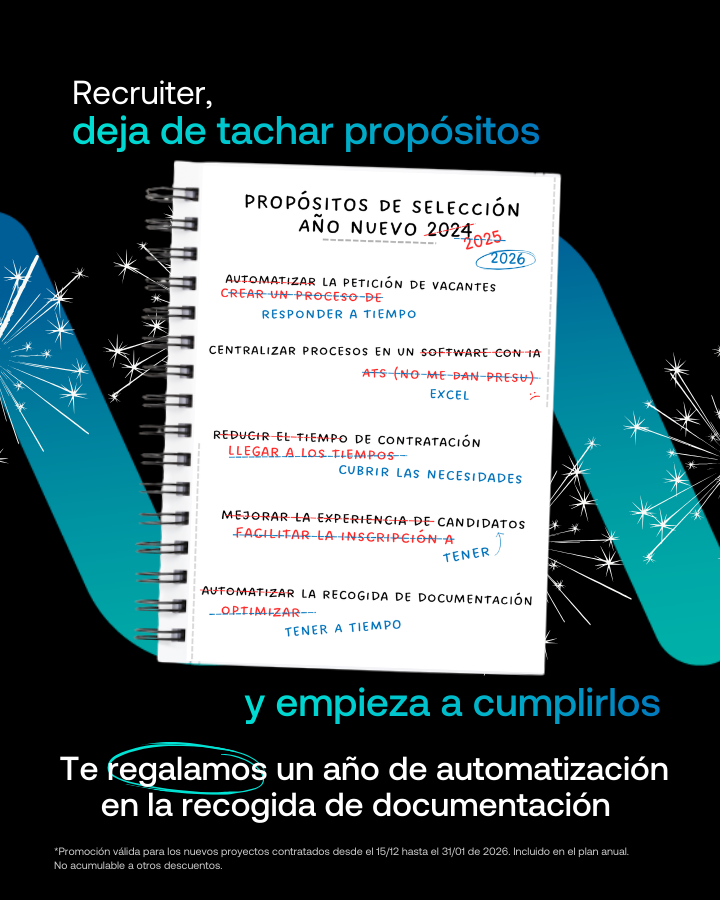Recruiting for retail: How to optimize recruitment and selection for your sales force
.jpg)
In a sector defined by high turnover, seasonal peaks, and the pressure to deliver flawless customer experiences, HR teams in retail face the challenge of attracting the right candidates and building a stable sales force.
This article explores what “retail human resources” really means, the main challenges of managing people in this sector, and the most effective strategies to recruit and retain sales staff using automation and AI.
What does “retail recruiting” really mean?
When we talk about retail HR, we refer to the practices, processes, and strategies that enable the management, selection, and development of sales staff in the retail sector.
From hiring and training to shift design and skills assessment, HR in retail plays a crucial role in ensuring stores deliver excellent service and maintain motivated teams.
Key HR challenges in retail
Managing people in retail comes with unique obstacles.
One of the most significant is high turnover—many sales associates work temporarily or move to competitors for better conditions. Add to this the seasonal imbalance, where events like Black Friday or Christmas suddenly increase hiring needs.
There’s also the complexity of managing schedules and shifts across large, flexible workforces while ensuring customers aren’t affected. Finally, HR teams face the challenge of handling large candidate volumes: a single job posting can attract hundreds of resumes in days.
Assessing competencies and performance in store associates
It’s not only about filling vacancies fast—selecting candidates with the right skills makes the difference. In retail, this means sales ability, empathy, inventory management, and customer focus.
A strong competency assessment reduces turnover and improves store productivity. Tools like Velora’s multi-level assessment help HR teams measure the right criteria at every step of the hiring process.
How to reduce retail employee turnover
Turnover drains budgets and affects customer experience. Common causes include unclear expectations, lack of career progression, and unattractive working conditions.
The solution lies in aligning the hiring process with the real demands of the role, strengthening onboarding experiences, and investing in employer branding. When candidates see a clear career path and a sense of belonging, they are far more likely to stay.
Scheduling, shifts, and operational flexibility
Flexibility is non-negotiable in retail, where demand shifts by the hour or the day. This is where technology becomes a critical ally.
With Velora’s intelligent staffing request manager, HR leaders can forecast needs, launch job postings, and cover vacancies at speed—avoiding the delays of manual scheduling.
Effective retail recruiting strategies
So, how are successful retail companies hiring smarter and faster? Let’s look at three strategies making the biggest impact:
Multiposting and job ad automation with AI
Manually posting on every job board is a thing of the past. With AI multiposting, you can distribute a job ad across multiple platforms, automatically optimize descriptions, and dramatically reduce time-to-hire. Velora makes it possible in just one step, boosting both reach and efficiency.
Strengthening employer branding in retail
Employer branding is often a deciding factor: today’s candidates want employers with purpose, stability, and growth opportunities. An attractive career site allows retailers to showcase their value proposition and attract more qualified talent. Velora Career Site helps companies do exactly that.
Smart recruitment and selection for the sales force
The future of retail hiring combines video interviews, chatbots and adaptive testing. Velora centralizes all these steps in one platform, so recruiters can focus on building long-term strategies instead of juggling tools.
Getting started: a practical HR checklist for retail
To bring all this into action, here’s a step-by-step checklist you can use to optimize your retail recruitment process:
- Preparation and alignment: define role requirements and key competencies with store managers.
- Attraction and visibility: publish jobs across multiple channels with AI multiposting, while boosting presence in retail-specific networks.
- Screening and filtering: automate resume screening to focus only on the most promising profiles.
- Competency assessment: test for core retail skills like customer orientation, teamwork, and sales abilities.
- Interview coordination: streamline scheduling, whether in-person or virtual, to speed up decisions.
- Decision, offer, and documentation: digitize contracts and manage paperwork seamlessly for a smooth onboarding.
- Onboarding and stabilization (0–90 days): design engaging onboarding plans that clarify expectations and build loyalty from day one.
- Analytics and continuous improvement: monitor KPIs like turnover, time-to-hire, and performance to refine the process.
Retail HR teams that embrace automation, precise competency assessment, and stronger employer branding will not only fill vacancies faster, but also attract motivated talent and keep them for longer.
Curious to see how this could look in your company? Book a Velora demo and discover how AI can transform your retail recruitment strategy.
.jpg)
Fulfill your selection purposes
Recruiter, fulfill your recruitment purposes in 2026 with the help of Velora. And as a gift, a free year on automatic document request.

Related articles
More articles to inspire your HR strategy









